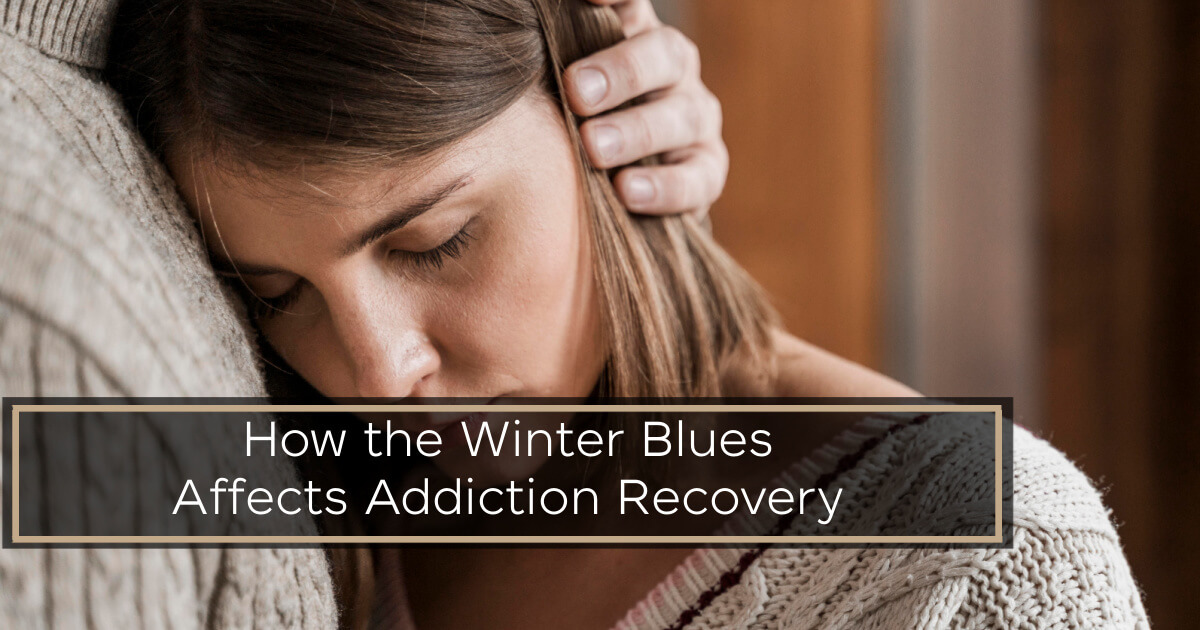The colder temperatures and the shorter days of winter can create a lot of challenges to anyone’s mental health, and dealing with the winter blues can be especially difficult for someone in addiction treatment. A lack of sunlight often results in seasonal depression and mood disorders. Taking a proactive approach to combating such depression by learning about seasonal affective disorders can be critical to maintaining sobriety during the long winter months.
Depression and Seasonal Affective Disorder
Seasonal depression is a clinical condition that commonly causes people to experience depressive episodes during the winter season. Individuals who are recovering from drug and alcohol addiction might find their symptoms exacerbated by seasonal affective disorder. A low mood complicates addiction treatment and makes it even more challenging to recover. Any of the following issues can complicate the journey to recovery.
Winter Relapse Triggers
Facing relapse triggers is relatively common during the winter months. These triggers can jeopardize the addiction recovery process. Short days and long nights can often lead to feelings of isolation and sadness that can derail even the best relapse prevention plan. A lack of social interaction and limiting participation in outdoor activities can even further exacerbate loneliness. Knowing how to recognize these triggers is vital to knowing how to beat the winter blues.
Lack of Natural Light
One of the primary reasons for winter’s impact on mood disorders, such as seasonal affective disorder, is the reduced exposure to natural light. Not getting enough sunlight can disrupt your body’s internal clock and lead to depression. A low mood or a lack of motivation is a common symptom of depression. These symptoms can complicate the addiction recovery process and may even result in a relapse. Spending more time outdoors or investing in light therapy lamps often help people get more sunlight exposure.
Boredom
Winter can often make it more difficult to be active outside, resulting in boredom. Dealing with the feelings of boredom is a well-known trigger for relapse. Spending additional time on hobbies or engaging in more fulfilling activities is thought to be critical to beating the winter blues and preventing addiction relapse. Remaining busy with activities can prevent boredom and help maintain sobriety. Finding new interests can also provide a fresh perspective and additional motivation to staying on the road to a full recovery.
Less Activity
Cold weather and shorter days often mean less physical activity. Exercise plays a significant role in addiction recovery, boosting mood and reducing stress. The decrease in activity during winter months can negatively impact anyone’s journey to recovery. Staying active, even in small ways, is crucial for your physical and mental health during these months. Doing indoor exercises is one way to keep active without dealing with the cold weather.
How to Support Your Journey to Recovery & Beat the Winter Blues
Finding ways to prevent addiction relapse is essential during the winter season. Fortunately, you can follow many steps to overcome seasonal depression.
Here are a few tips on how to limit the impact of depression and seasonal affective disorder during the winter months.
Stay Connected
One way to overcome isolation is to maintain a strong support network. Finding time to connect with friends, family, or support groups on a regular basis is often key to addiction treatment.
Get Exposure to Natural Light
Not getting enough exposure to natural light can lead to depression. You may want to consider opening the curtains during the day and reflect upon receiving light therapy to mitigate the effects of seasonal affective disorder.
Stay Active
Physical activity is a great way to boost your mood. Regular exercise doesn’t only improve your mental well-being, but it can help you maintain a healthy weight.
Seek Professional Help
If you’re struggling with symptoms of mood disorders or addiction relapse, don’t hesitate to seek professional help. Therapists and counselors can often offer valuable support and guidance.
Final Thoughts
The winter months can create many challenges for those in addiction recovery. Knowing how to overcome these issues is essential to maintaining sobriety. Keep in mind that resources and support are always available to help you beat the winter blues.








